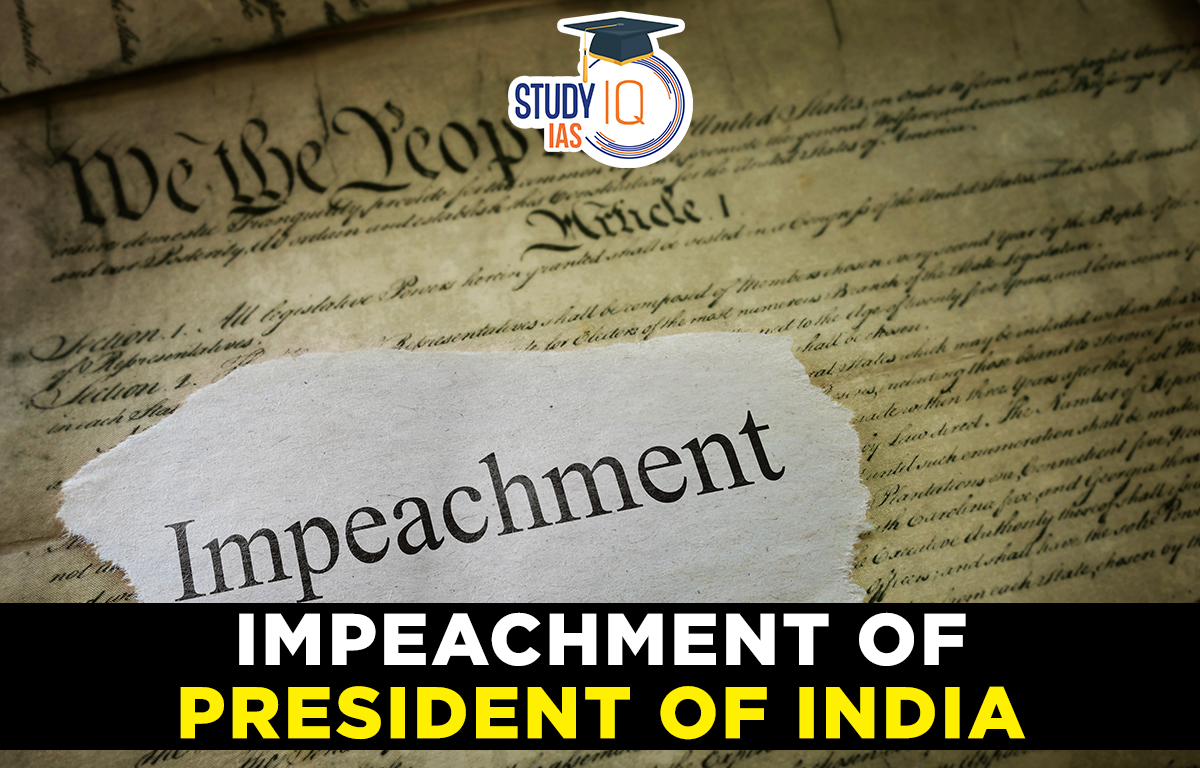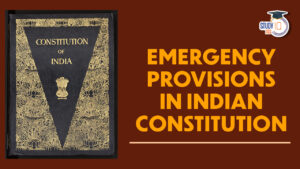Table of Contents
What is Impeachement?
Impeachment is a formal process where a legislative body, like a parliament or congress, brings charges against a public official for misconduct. It is used as a last resort when the official has committed very serious offenses. These offenses can include things like
- treason (betraying the country),
- bribery (accepting money or gifts in exchange for favors), or
- other major crimes and misdemeanors.
The goal of impeachment is to hold public officials accountable for their actions and to ensure that they uphold the law and maintain the trust of the people. If found guilty, the official can be removed from office or face other consequences.
The Impeachment of President of India is an important part of Indian Polity which an important subject in UPSC Syllabus. Students can also go for UPSC Mock Test to get more accuracy in their preparations.
Impeachment of President of India
Constitution Act 1971 (Twenty-sixth Amendment):
- First mention of impeachment in India’s constitution.
- Article 61: The President can be impeached and removed before the term ends.
- Parliament has the authority to remove the President.
- No impeachment trials have occurred yet.
| Grounds for Impeachment of President in India: |
1. Violation of the Constitution:Includes treason, bribery, corruption, abuse of power, gross misconduct, negligence of duty, and violation of fundamental rights. 2. Death:Automatically removes the President from office. 3. Resignation:President can resign anytime; resignation must be communicated to the Vice President, who informs the Speaker of the Lok Sabha. 4. Invalid Election:If declared invalid by the Supreme Court, the President is removed from office |
Impeachment of President of India Meaning
Impeachment of President of India is the process of challenging the validity or dependability of something. It describes the process used to determine whether to strip a public official of all of the power and duties that come with the position. Thus, the term “impeachment” refers to the entire removal process.
Typically, it applies to the President, judges of judicial courts, and other positions listed in the constitution. In any of the various nations with federal, presidential, constitutional, or republican governments, impeachment refers to an allegation of wrongdoing presented against the holder of a government position.
Impeachment of President of India Procedure
Impeachment was first included in the Indian Constitution by the “Constitution Act, 1971” (Twenty-sixth Amendment). The President may be impeached and removed from office before the conclusion of his term, as per Article 61 of the Constitution. The President may be removed from office by the Parliament. Although the process has been created by law, no president has yet been the target of an impeachment trial.
The impeachment process for the President of India is quasi-judicial and can start in either the Lok Sabha or Rajya Sabha. If initiated in the Rajya Sabha, it passes the resolution to the Lok Sabha, which then reviews and votes on it.
Important points:
- Nominated individuals in either House can participate in the impeachment process but don’t vote in the President’s election.
- Elected members of state legislative assemblies and the union territories of Delhi and Puducherry vote in the President’s election but don’t participate in the impeachment process.
Grounds for Impeachment of President in India
The only grounds for impeaching the president of India are alleged constitutional infractions. However, the constitution does not define “violation of the Constitution”.
Process of Impeachment of President in India
In India, the Parliament’s impeachment procedure for the president is quasi-judicial in nature. Both the Lok Sabha and the Rajya Sabha have the authority to begin the process of impeaching the president of India. The Lok Sabha will evaluate the claims and cast a vote if it thinks they are true if the Rajya Sabha brings them. If the Lok Sabha receives the allegations, it will pass the resolution and submit them to the Lok Sabha.
Impeachment of President of India and its Impact
When a president is impeached, it means the Houses of Parliament have charged them with high crimes or misdemeanors. Impeachment is the only penalty for violating the constitution. During proceedings, the President can have legal representation. They can either defend themselves or choose a lawyer or the Indian Attorney General.
Under Article 361, the president cannot be interrogated unless they voluntarily appear in court. The courts would rule unconstitutional acts unlawful based on information from the Union government.
While in office, the president cannot be tried or jailed. However, the Supreme Court ruled in 2006 that they can be tried and found guilty for crimes committed in office after leaving the post.
Impeachment of President of India UPSC
The procedure to remove an official is called the impeachment process. It takes use of the Constitution’s clauses to make sure that the President and other officials behave in a way that is appropriate for their positions and upholds the Constitution. It is a procedure for removing an official from office for breaking the oath, betraying confidence, or engaging in other grave wrongdoing. Although there has been resistance to every President, the impeachment procedure is rarely used. Instead, impeachment is a procedure to make public figures answerable for their deeds.
The Speaker immediately creates a three-member committee consisting of a Supreme Court judge, a Chief Justice of a high court, and an accomplished jurist who are empaneled to hear the allegations as soon as he receives such a notice. Students can read all the details related to UPSC by visiting the official website of StudyIQ UPSC Online Coaching.


 Indian Secularism: Constitutional Provis...
Indian Secularism: Constitutional Provis...
 India Mediation Campaign, Objectives, Pr...
India Mediation Campaign, Objectives, Pr...
 Emergency Provisions in Indian Constitut...
Emergency Provisions in Indian Constitut...





















